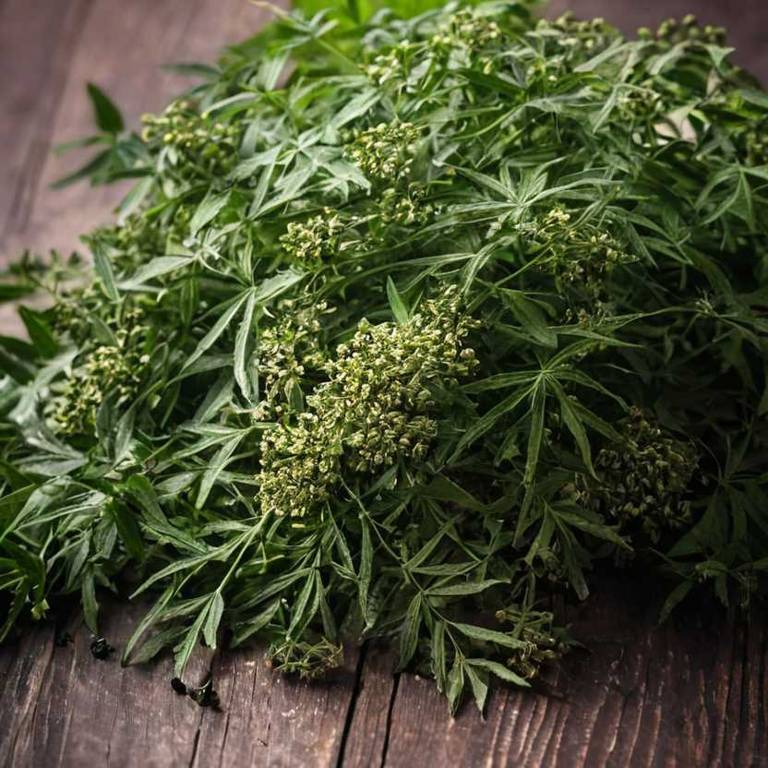By Leen Randell
Updated: Jul 06, 2024
10 Health Benefits Of Sambucus Nigra (Elder)

Sambucus nigra, also known as elder, has health benefits such as relieving cold and flu symptoms, reducing inflammation, and promoting cardiovascular health.
Its medicinal properties include antiviral and antimicrobial compounds, as well as flavonoids and phenolic acids. These properties make elder effective in soothing sore throats and congested chests, as well as lowering blood pressure and cholesterol levels, thereby reducing the risk of heart disease.
This can improve people's lives by boosting their immune system and overall well-being.
This article explains in details the 10 best health benefits of Sambucus nigra.
1. Boosts immune system
Sambucus nigra boosts immune system because of its rich antioxidant and flavonoid content.
The plant's berries, flowers, and leaves have been traditionally used to treat various ailments, including respiratory infections, fever, and inflammation.
Elder's anthocyanins and quercetin have been shown to exhibit immunomodulatory properties, enhancing the body's natural defense mechanisms against pathogens and reducing oxidative stress, ultimately contributing to a stronger immune system.
2. Reduces inflammation
Sambucus nigra reduces inflammation because it contains a wealth of bioactive compounds, including flavonoids, phenolic acids, and anthocyanins.
These antioxidants have been shown to inhibit the production of pro-inflammatory molecules, such as cytokines and prostaglandins, which are associated with chronic diseases like arthritis, atherosclerosis, and asthma.
Additionally, elder's anti-inflammatory properties may also be attributed to its ability to modulate the activity of enzymes involved in the inflammatory response.
3. Fights harmful bacteria
Sambucus nigra fights harmful bacteria because of its rich composition of bioactive compounds.
The plant's berries, leaves, and flowers contain anthocyanins, flavonoids, and phenolic acids that exhibit antibacterial properties. These compounds have been shown to inhibit the growth of a wide range of bacteria, including multidrug-resistant strains, by disrupting cell membrane integrity, inhibiting protein synthesis, and triggering oxidative stress.
This natural defense mechanism makes elder an effective ingredient in traditional medicine and dietary supplements.
4. Alleviates cold and flu symptoms
Sambucus nigra alleviates cold and flu symptoms because of its rich content of bioactive compounds, particularly anthocyanins and flavonoids.
These potent antioxidants have anti-inflammatory properties that help reduce congestion, soothe sore throats, and ease body aches associated with respiratory infections.
Additionally, elder's antimicrobial properties can help combat the underlying infection, promoting faster recovery and alleviating symptoms such as coughing, sneezing, and runny nose.
5. Decreases duration of illness
6. Improves heart health
Sambucus nigra improves heart health because of its rich antioxidant and flavonoid content.
These compounds have been shown to help lower blood pressure, improve blood lipid profiles, and reduce inflammation in the cardiovascular system. Additionally, elder extracts have been found to inhibit platelet aggregation, reducing the risk of blood clots and stroke.
Overall, regular consumption of Sambucus nigra may contribute to a reduced risk of heart disease and its associated complications.
7. Regulates blood sugar levels
Sambucus nigra regulates blood sugar levels because it contains compounds that have been shown to improve insulin sensitivity and reduce glucose absorption in the gut.
The anthocyanins present in elderberry may also help to inhibit the activity of enzymes involved in carbohydrate metabolism, leading to a decrease in blood sugar levels.
Additionally, elder has been traditionally used to treat symptoms of diabetes, such as polyuria and hyperglycemia, suggesting its potential therapeutic benefits for managing blood sugar levels.
8. Reduces risk of cancer
Sambucus nigra reduces risk of cancer because its anthocyanins and flavonoids have been shown to exhibit anti-cancer properties.
These compounds have been found to inhibit the growth of cancer cells, induce apoptosis, and suppress metastasis. Elderberry has also been shown to enhance chemotherapy effects and reduce oxidative stress, making it a potential adjunctive treatment for cancer patients.
Its bioactive compounds may help protect against carcinogenesis and improve overall cancer outcomes.
9. Supports healthy skin
Sambucus nigra supports healthy skin because of its rich antioxidant and anti-inflammatory properties.
The berries and flowers of this plant contain anthocyanins, flavonoids, and phenolic acids that help protect the skin from environmental stressors and damage caused by free radicals.
Additionally, elder's flavonoids have been shown to improve microcirculation, reducing inflammation and promoting collagen production, leading to a more radiant and youthful appearance.
10. Enhances mental health
Sambucus nigra enhances mental health because of its unique combination of bioactive compounds, including flavonoids and phenolic acids.
These compounds have been shown to possess anti-anxiety and antidepressant properties, helping to alleviate symptoms of stress, anxiety, and depression.
Additionally, the berries, leaves, and flowers of the elder plant contain antioxidants that promote overall mental well-being by reducing oxidative stress and inflammation in the brain.